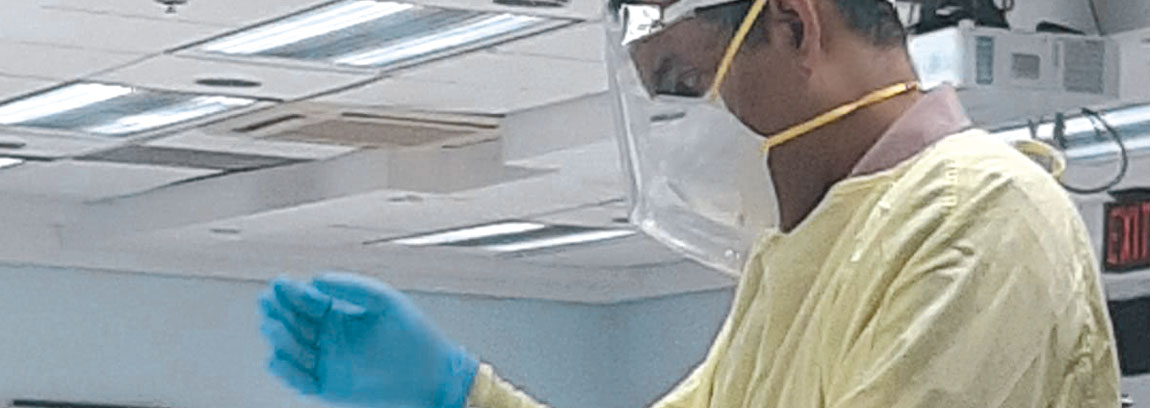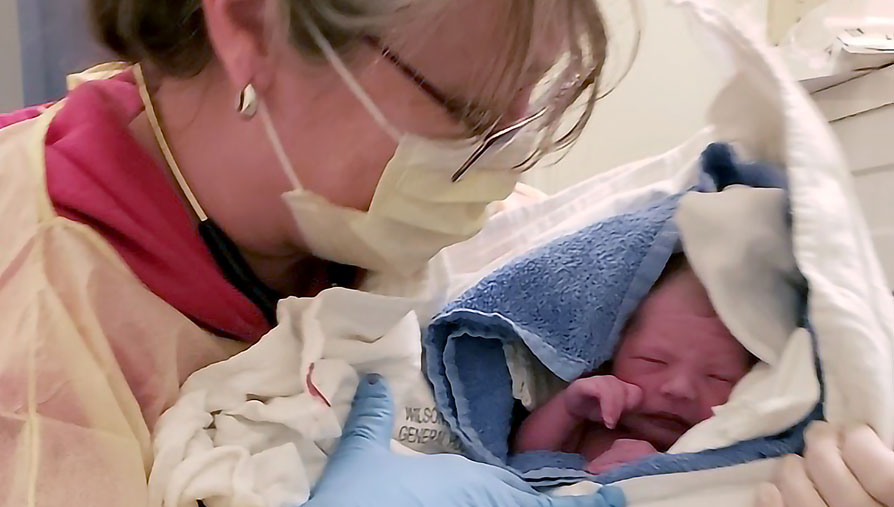Check Where You Are on the Continuum
How anyone manages the psychological burden during COVID-19 depends partly on their starting point, says Dr. Doina Lupea, Senior Director Administration, PHP. Were you balanced and grounded, or already feeling somewhat burned out? On the other hand, some people who’ve struggled in the past could be a step ahead, adds Dr. Albuquerque, as they might have developed good coping mechanisms. Understand that mental health isn’t binary: well or ill. “You have to know where you are on the mental health continuum,” says Dr. Lupea.
Some days, you might feel fine, with typical energy, performance and moods. Other times, you might be more irritable or sad, with less vigour. You can experience increased anger, hopelessness and fatigue. Or feel depressed, exhausted and unable to perform.
Things can fluctuate. Recognizing that can help you take appropriate actions at each phase, and seek help if needed.
The OMA has launched daily Zoom chat sessions to support each other during COVID-19. They happen weekdays at noon. The one-hour sessions are open to all MDs and MDs in training. They’re meant to be a safe space for people to talk about how they’re managing, and are led by Dr. Kasra Khorasani, a staff psychiatrist at Mount Sinai Hospital and St. Joseph’s Health Centre in Toronto.
From a stress standpoint, what makes COVID-19 different than other emergencies is the sheer immensity, says Dr. Lupea. This isn’t just a health care crisis, but a social and economic crisis. It’s hard to leave the stress at work, when you’re reminded of the impact of COVID-19 globally and on the daily realities of our lives. You can’t escape it. In that respect, no one is immune.
Still, attitudes play a big role in how people cope. Professionally, be thankful for what you can give, Dr. Lupea says. That’s meaningful, and can be a great solace.
The scale and ripple effects of COVID-19 can make it feel like the world itself has become unmoored. The feeling that anything can happen can make you apprehensive. Or, says Dr. Lupea, “It can make you appreciate what you have, when you have it.”
“You choose your reaction,” she says. “Acceptance doesn’t have to mean laying down your weapons. You just realize what you can and cannot do. This too shall pass.”
Having perspective and gratitude – for being able to play a constructive role, and for whatever is good in your life – can carry you far. Especially with something that will go on as long as COVID-19.
Some health care crises and demands on doctors are more like a sprint. You go flat out for a relatively short period, and then it’s over. Not this time. So think of what it takes to handle the psychological load and workload for the duration, and beyond.
“We require a marathoner’s mindset,” says Bober. “This is a long-distance run. But we actually don’t know where the finish line is.”
It’s actually a marathon combined with a steeplechase, says Dr. Albuquerque, as new hurdles keep appearing. “We have to adapt,” she says.
The stress of practicing medicine is never easy, and the pandemic will challenge many doctors like never before. People have to seek their own individual strategies to manage. What’s needed too is helping peers and other health care workers to cope.
“The culture will encourage physicians to do what they’ve always done, and rise to the occasion,” says Bober. “Hopefully, we also have a sense of cohesion and collegiality, that we’re in this together and can support each other as we move forward.”
Stuart Foxman is a Toronto-based writer.

